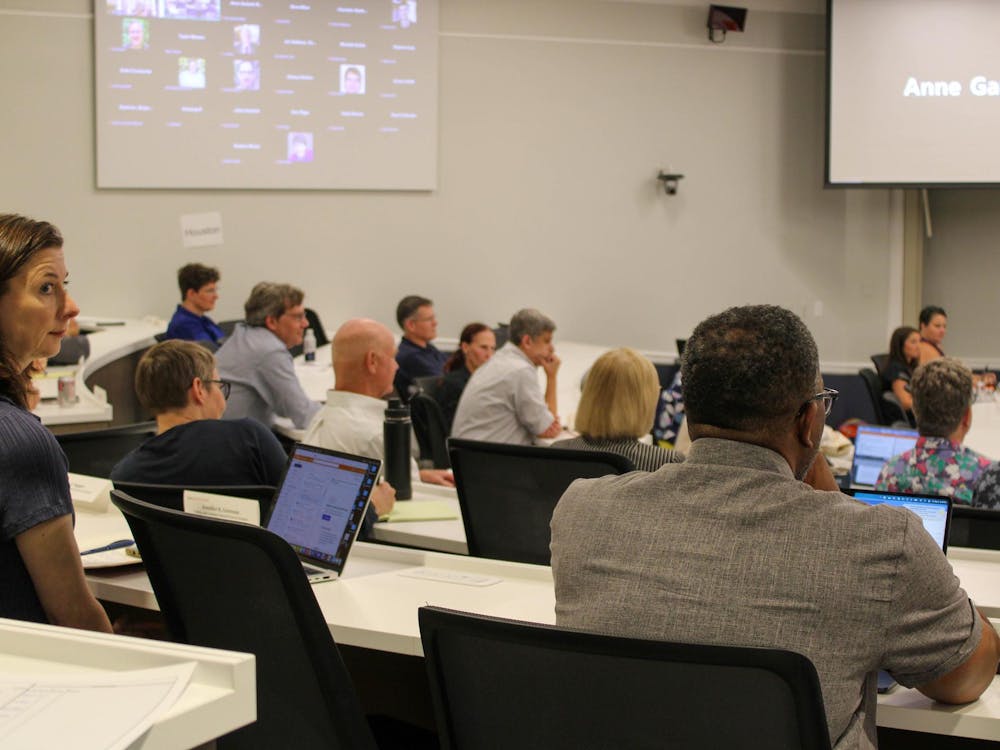The Law School’s Student Bar Association passed a resolution Monday evening criticizing the Honor Committee’s choice to present its two-part Restore the Ideal act as a single referendum. The Law School governing body described the Committee’s decision as “regrettable.”
Supporters of the resolution took issue with the packaging of what they viewed as two distinct proposals into a single vote. The proposal combines informed retraction, which would allow students charged with honor violations to admit their guilt and return to the University after two academic semesters, with the proposal eliminating random student juries, which would require honor juries be composed exclusively of Committee student representatives.
Although the association reached no clear consensus on the reforms as a whole, many members felt decisively about the all-or-nothing nature of the proposal, said Association President Alex Aurisch, a third-year Law student. “We did feel it would have been better to have them as single issues since they were perceived as single problems,” she said.
Third-year College student Evan Behrle, honor senior counsel member, said he believed both elements of the proposal are necessary to correct the problems with the current system. “The informed retraction incentivizes honesty, while the jury reform disincentives dishonesty, ” he said.
The resolution also took issue with the proposal’s inclusion of the jury reform as a constitutional amendment, whereas the informed retraction proposal would simply be a change to Committee bylaws.
“If the current proposals are passed, the Honor Committee could repeal informed retraction at any time,” according to the referendum.
Second-year Law student Ron Fisher, an outspoken opponent of the reforms, said the potential for the Committee to revoke informed retraction if elected juries are implemented is a credible fear that needs more attention. “The fact that current Honor Committee members swear up and down that they will not repeal informed retraction is irrelevant,” he said. “They cannot bind later Honor Committees, or promise that later committees will not repeal informed retraction, unless they also constitutionalize informed retraction.”
Future Honor Committees, Behrle said, would not revoke informed retraction even though it would technically be within their power. “The Committee would never adopt an informed retraction without a student vote, and they would similarly never get rid of it without one,” he said.
Student Bar Association Honor Representatives Benjamin Heriaud and Rebecca Cohn said they did not expect voters, particularly undergraduates, to be heavily swayed by the association’s resolution, given the exhaustive debates already occurring among the student body.
An earlier version of this article incorrectly attributed language from the association proposal about the informed retraction bylaw change to Aurisch.






